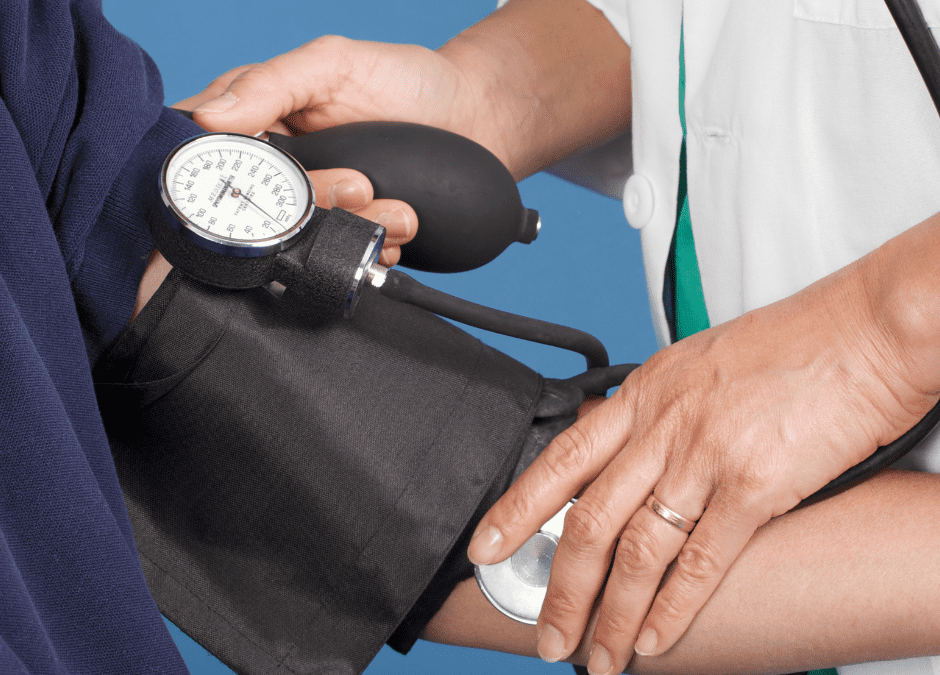Blood pressure is a crucial part of health, but many of us don’t fully understand what it means or how it impacts our well-being. In this blog, we’ll break down everything you need to know about blood pressure—from understanding the numbers to recognizing symptoms and the importance of screenings.
What Is Blood Pressure?
Think of your heart as a pump whose primary job is to push blood through your blood vessels to your organs. Blood pressure refers to the force of blood against the walls of your blood vessels as the heart pumps, and it’s measured with two numbers.
The first (top) number, called systolic pressure, measures the pressure when the heart is actively pumping blood. The second (bottom) number, called diastolic pressure, measures the pressure in the blood vessels when the heart is resting between beats.
What Is Considered Normal Blood Pressure?
The normal blood pressure range is less than 120 for systolic pressure and less than 80 for diastolic pressure (for example, 119/79). Anything above this falls into different categories, including:
- Elevated (120-129/<80)
- High blood pressure stage 1 (130-139/80-90)
- High blood pressure stage 2 (140+/90+)
- Hypertensive crisis (180+/120+), which requires immediate medical attention
Why Is Blood Pressure Important?
When it comes to blood pressure, it’s important to know whether you’re in a healthy range. High blood pressure, or hypertension, is often called a “silent killer” because it often has no obvious warning signs or symptoms. Despite this, it can lead to serious, life-threatening conditions—such as heart attacks, strokes and kidney damage. Hypertension is very common in the U.S.—nearly half of adults are affected—and about one in three of them don’t even know they have it.
Severe low blood pressure can also cause issues like shock or organ damage if it’s extreme enough, though this is far less common (only affecting about 10% of adults).
What Are Signs of High Blood Pressure?
While the symptoms for it aren’t always evident, the following can indicate a case of high blood pressure:
- Headaches: Persistent ones, especially at the back of the head, can point to high blood pressure.
Dizziness or lightheadedness: Feeling faint—especially when standing up quickly—may indicate elevated blood pressure. - Shortness of breath: Difficulty breathing or feeling winded with minimal exertion can be linked to high blood pressure.
- Blurred Vision: Vision changes or blurred eyesight can result from uncontrolled high blood pressure affecting the eyes.
What Are Signs of Severe Low Blood Pressure?
Low blood pressure can also be indicated by dizziness and blurred vision like high blood pressure, but it does have a couple of unique symptoms:
- Fatigue: Constant tiredness or feeling weak throughout the day may indicate low blood pressure.
- Nausea: Feeling nauseous or lightheaded can be a symptom of low blood pressure.
When Should I Be Screened for Blood Pressure?
We recommend that anyone over the age of 40 be checked at least once a year. For those between the ages of 18 and 39, checking every couple of years may be sufficient. Keep in mind that checking blood pressure is quick and easy, taking just a few moments either with a medical provider or at home using a personal machine (just be sure to follow the instructions carefully).
If you already know you have elevated blood pressure, more frequent checks are advised. Just know that only a medical professional can confirm a high blood pressure diagnosis. At Carolina QuickCare, we check blood pressure for all patients during nearly every visit.
What Should I Do if My Blood Pressure Is Elevated?
If your blood pressure is found to be elevated on more than one occasion, it’s important to follow up with your healthcare provider for further guidance. In most cases, lifestyle modifications will be recommended (especially if the elevation is not severe) and can include:
- Eating a healthier diet
- Maintaining a healthy weight
- Getting regular physical activity
- Quitting tobacco
- Limiting alcohol consumption
If these lifestyle changes do not lower your blood pressure over time, your primary care provider may suggest medication. There are various types of blood pressure medications, so their goal will be to find the one that works best for you.
Need Medical Assistance? Trust Carolina QuickCare
Whether it’s to verify your blood pressure or get help for any other number of problems, Carolina QuickCare can support your health quickly and correctly. Simply walk into your nearest location or schedule your same-day appointment today.


Recent Comments